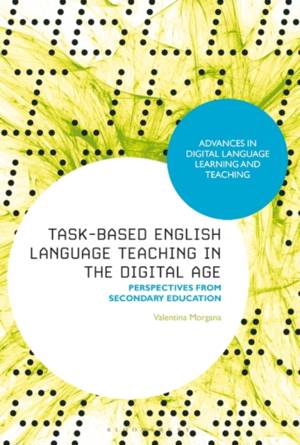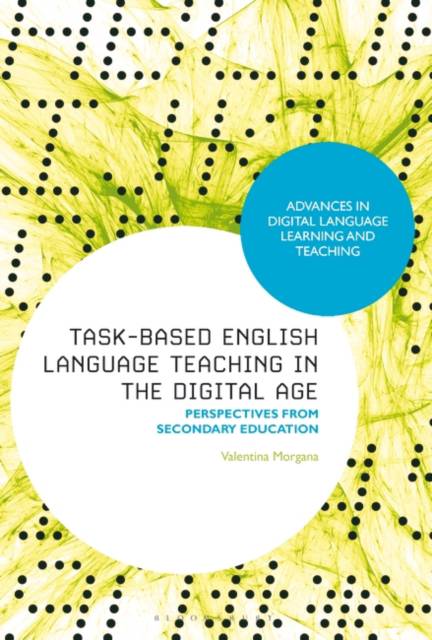
Bedankt voor het vertrouwen het afgelopen jaar! Om jou te bedanken bieden we GRATIS verzending (in België) aan op alles gedurende de hele maand januari.
- Afhalen na 1 uur in een winkel met voorraad
- In januari gratis thuislevering in België
- Ruim aanbod met 7 miljoen producten
Bedankt voor het vertrouwen het afgelopen jaar! Om jou te bedanken bieden we GRATIS verzending (in België) aan op alles gedurende de hele maand januari.
- Afhalen na 1 uur in een winkel met voorraad
- In januari gratis thuislevering in België
- Ruim aanbod met 7 miljoen producten
Zoeken
Task-Based English Language Teaching in the Digital Age
Perspectives from Secondary Education
Valentina Morgana
€ 220,45
+ 440 punten
Omschrijving
This book illustrates the developments of task-based language teaching (TBLT) approaches in relation to the evolution of digital technologies. It highlights how technology-mediated TBLT principles can support English as a Foreign Language (EFL) learning and contribute to understanding new classroom dynamics. Drawing from the key theoretical concepts of TBLT, the author discusses the integration of tasks and technologies from a secondary education perspective, which is often under-represented in the TBLT literature. Morgana looks at how the EFL secondary classroom has been recently re-conceptualised as a social place whose boundaries go far behind the traditional school settings. This book provides theoretical approaches and classroom implementation practices by presenting four case studies on the different L2 skills (reading, writing, listening and speaking).
The volume is organised into two main sections. The first section focuses on the theoretical approaches to TBLT and highlights the key concepts behind this methodology. This section also looks at the recent development of a technology-mediated TBLT framework and its implementations in various EFL educational contexts. The second section presents four case studies of secondary-school EFL learners in Italy. Each case study focuses on a different language skill, providing examples of classroom practices in both blended and online learning settings. Pedagogical recommendations for teachers are provided at the end of each case study. The book adopts a multimodal approach and aims at providing scholars in applied linguistics and TBLT practitioners with theories and implementation practices to understand the ways technologies are shaping tasks and mediating students' learning processes.
The volume is organised into two main sections. The first section focuses on the theoretical approaches to TBLT and highlights the key concepts behind this methodology. This section also looks at the recent development of a technology-mediated TBLT framework and its implementations in various EFL educational contexts. The second section presents four case studies of secondary-school EFL learners in Italy. Each case study focuses on a different language skill, providing examples of classroom practices in both blended and online learning settings. Pedagogical recommendations for teachers are provided at the end of each case study. The book adopts a multimodal approach and aims at providing scholars in applied linguistics and TBLT practitioners with theories and implementation practices to understand the ways technologies are shaping tasks and mediating students' learning processes.
Specificaties
Betrokkenen
- Auteur(s):
- Uitgeverij:
Inhoud
- Aantal bladzijden:
- 208
- Taal:
- Engels
- Reeks:
Eigenschappen
- Productcode (EAN):
- 9781350288010
- Verschijningsdatum:
- 13/07/2023
- Uitvoering:
- Hardcover
- Formaat:
- Genaaid
- Afmetingen:
- 156 mm x 234 mm
- Gewicht:
- 467 g

Alleen bij Standaard Boekhandel
+ 440 punten op je klantenkaart van Standaard Boekhandel
Beoordelingen
We publiceren alleen reviews die voldoen aan de voorwaarden voor reviews. Bekijk onze voorwaarden voor reviews.









